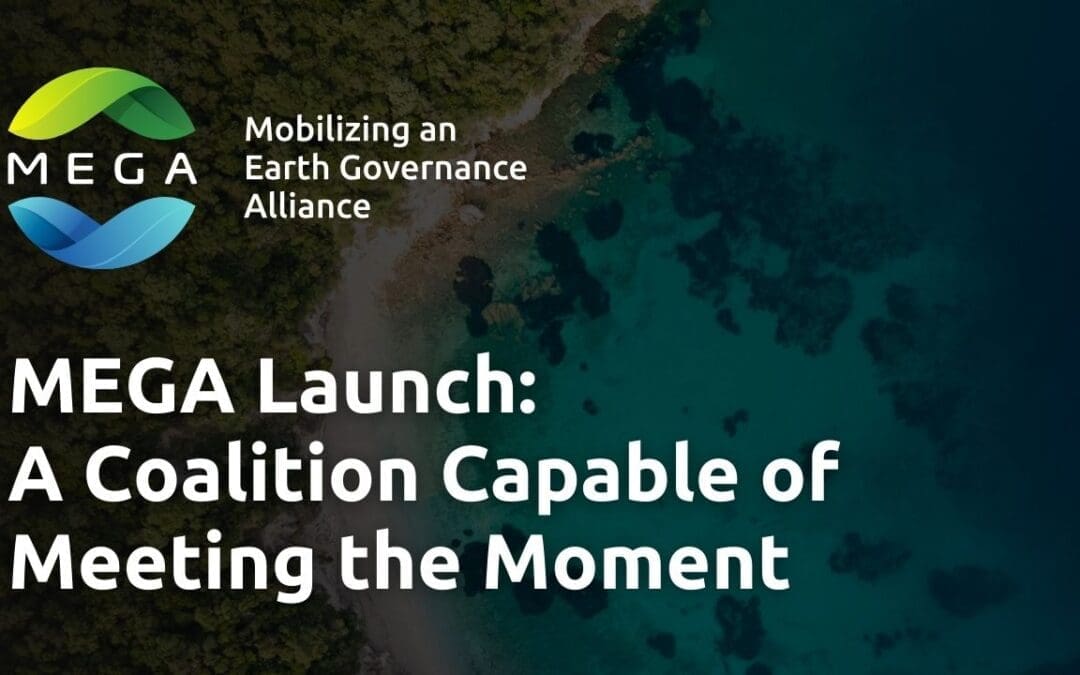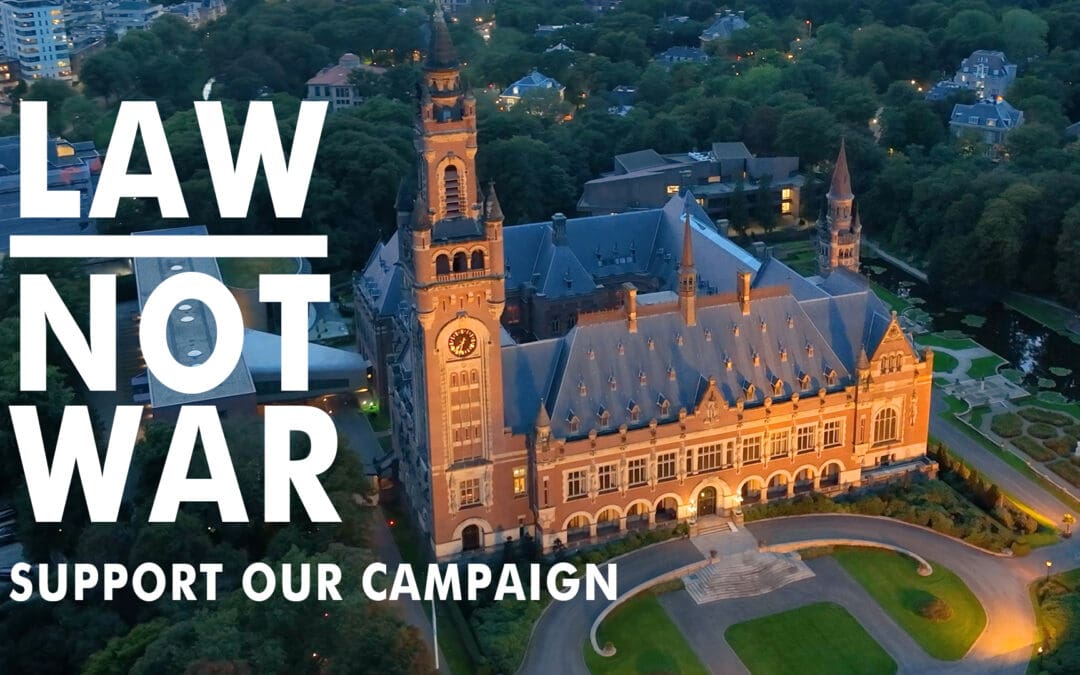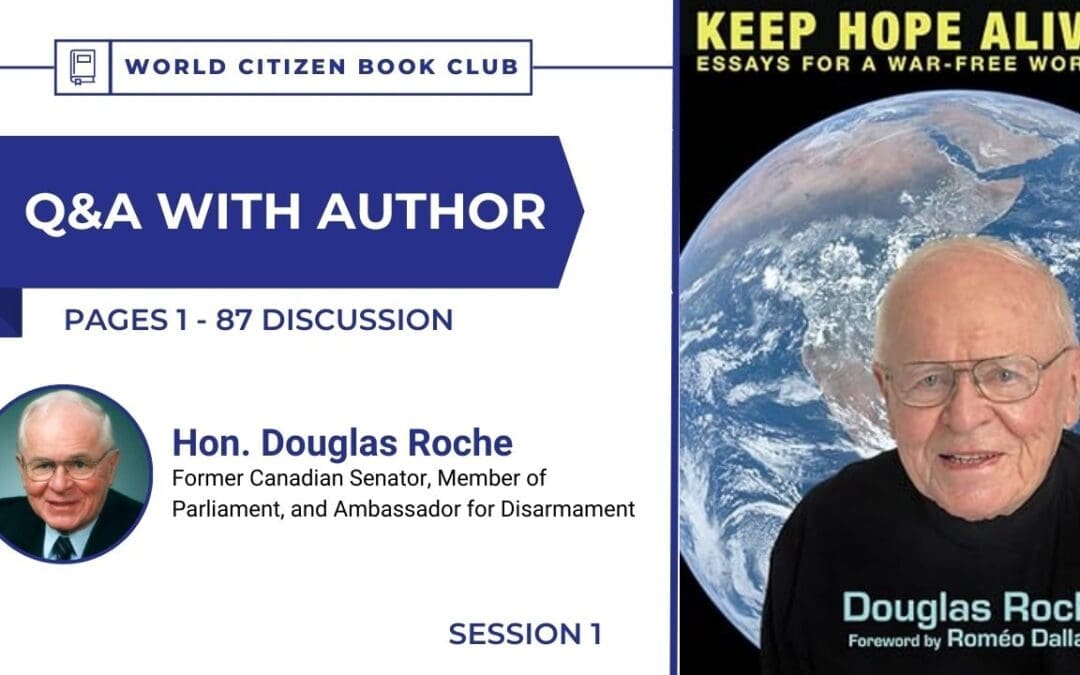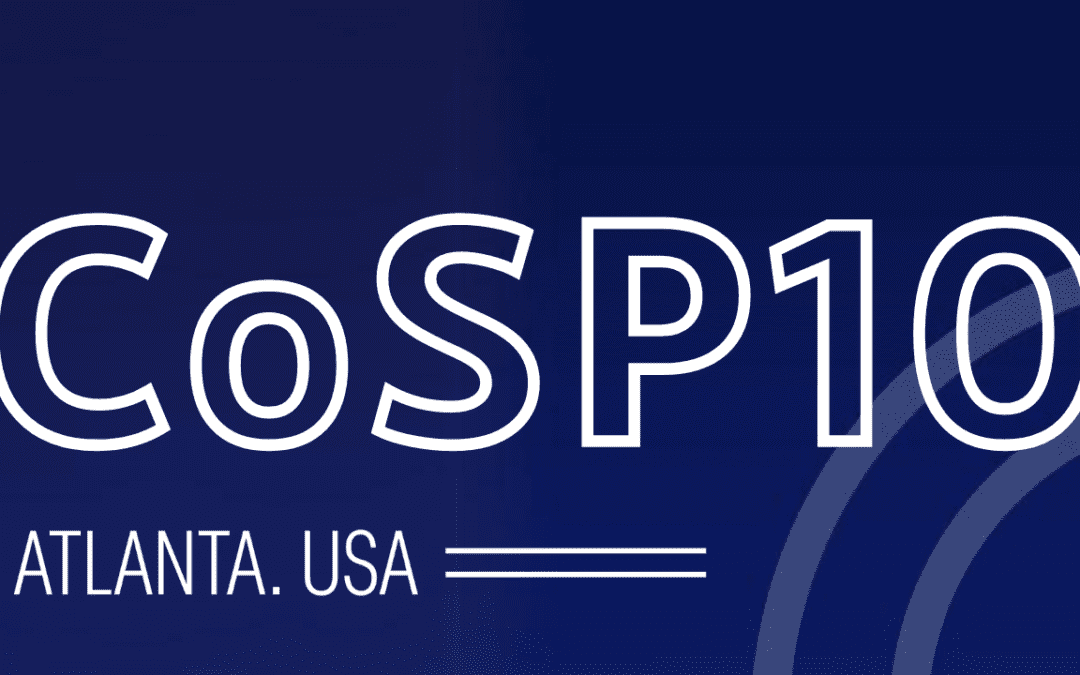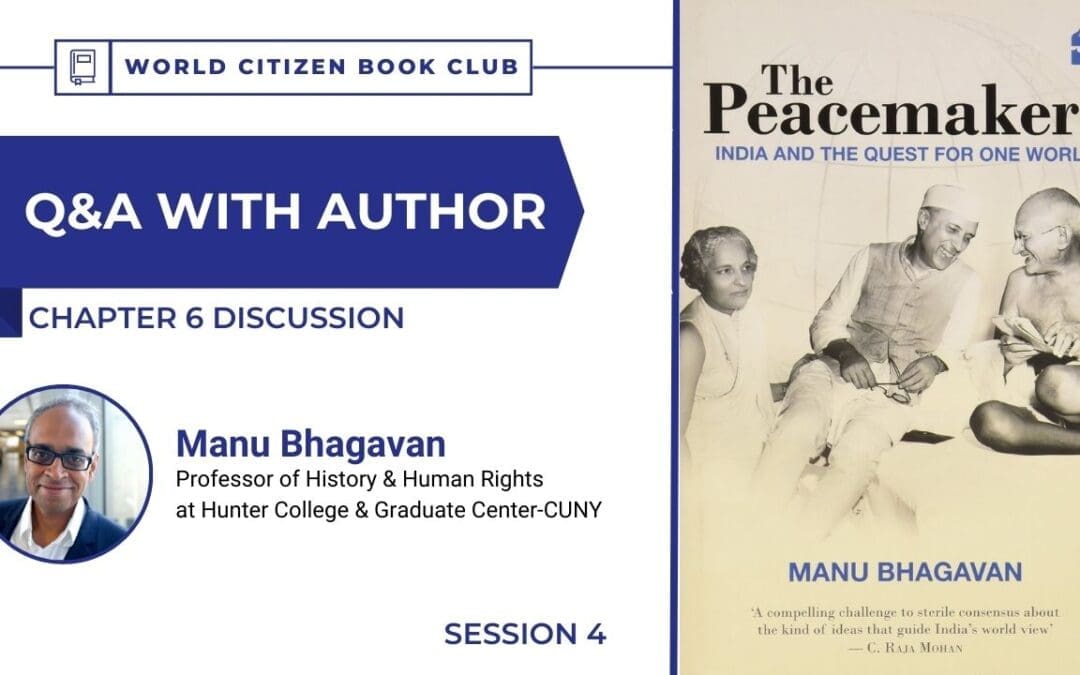
by CGS | Mar 26, 2024 | Past Event
Watch the recording of the global launch of Mobilizing an Earth Governance Alliance (MEGA), which took place on March 26, 2024 as a hybrid event in Geneva.
The MEGA launch event was co-chaired by Rebecca Shoot (USA), Executive Director of Citizens for Global Solutions and Alyn Ware (New Zealand/Czech Republic), Program Director for World Federalist Movement – Institute for Global Policy. It included presentations and discussion from:
- Mary Robinson (Ireland) Chair, Climate Governance Commission. Former President of Ireland and UN High Commissioner for Human Rights
- Maja Groff (Canada/Netherlands) Convenor, Climate Governance Commission John Vlasto (United Kingdom) Chair, World Federalist Movement – Institute for Global Policy
- Margareta Kiener Nellen (Switzerland) Board Member, Peace Women Across the Globe Former MP and Head of the Swiss Delegation to the Inter-Parliamentary Union.
- Arthur Lyon Dahl (Switzerland) President of the International Environment Forum
- Neshan Gunasekera (Sri Lanka/Sweden) Chair, Earth Trusteeship Initiative. Visiting Fellow.
- Raoul Wallenberg Institute of Human Rights & Humanitarian Law
- Alexander Schmidt (Sweden). Head of Science, Sustainability and Climate Research, Normative (carbon accounting platform)
MEGA hosts an online platform of global governance proposals and campaigns, supports advocacy to governments and policy makers, builds communication and co-operation amongst organizations and other stakeholders in the field, and undertakes public education in international environmental governance. For more information and ways to get involved, visit MEGA’s website.

by CGS | Mar 16, 2024 | Press Release
Legal Alternatives to War: Increasing the universality and effectiveness of the International Court of Justice
March 16, 2024. Resolve international conflicts in the courtroom, not the battlefield, the LAW not War crowdfunding campaign is live. We invite you to watch the promo video, make a donation and circulate to your networks.
“From the smallest village to the global stage, the rule of law is all that stands between peace and stability and a brutal struggle for power and resources. I note the importance of accepting the compulsory jurisdiction of the Court and call on all Member States to do so without any reservations.” Antonio Guterres, UN Secretary-General. Remarks to the UN Security Council Thematic Debate on the Rule of Law amongst Nations, January 12, 2023
“I prefer law to war under all circumstances.” Benjamin Ferencz (1920-2023), Prosecutor at the Nuremberg War Crimes Tribunals. International champion of international law who popularised the motto ‘Law not War.’
Project outline
LAW not War is a new global campaign to enhance the jurisdiction and use of the International Court of Justice (ICJ) in order to assist countries resolve international disputes peacefully rather than through recourse to the threat or use of force.
The principal objective of the campaign is to increase the number of States accepting the compulsory jurisdiction of the ICJ, with the aspiration to achieve universal acceptance of jurisdiction by 2045, the 100th anniversary of the United Nations.
In addition, the campaign works to enhance ICJ jurisdiction through:
- Promoting greater use by UN bodies of the option to request Advisory Opinions from the ICJ;
- Encouraging disputing States to make more frequent use of the option of taking cases to the ICJ by mutual agreement;
- Encouraging more frequent use of the compulsory ICJ jurisdiction provision in a number of international treaties, and promoting the inclusion of compulsory ICJ jurisdiction in additional treaties;
- Encouraging states to adopt constitutional amendments or legislative measures to affirm the UN Charter prohibition of war and the obligation to resolve international disputes peacefully including through recourse to the ICJ.
The campaign employs a mixture of education about the value and impact of ICJ jurisdiction, and advocacy to enhance such jurisdiction.
Authority, influence and impact of the ICJ
The ICJ has had considerable success at resolving international disputes, including some that involved the threat or use of force. Examples include:
- Nicaragua v United States, which helped end US aggression against Nicaragua and paved the way for the Central American Peace Accords;
- The Nuclear Tests case, which helped end nuclear testing in Pacific;
- Chad v Libya, which resolved their territorial dispute and ended their armed conflict,
- Costa Rica v Nicaragua, which resolved their territorial dispute over the Isla Portillos and ensured withdrawal of the Nicaraguan military forces.
The authority of the ICJ within the United Nations system, and the unique contribution the ICJ plays with respect to the application of the law, ensures that its decisions exert considerable influence and impact on the parties and other stakeholders in its cases.
An analysis of ICJ cases undertaken by Judge C.G. Weeramantry (former Vice-President of the ICJ), for example, indicated that approximately 90% of ICJ cases are implemented – either fully or mostly.
However, its role is limited by the fact that its jurisdiction is based on voluntary acceptance. As such, many disputes that could potentially be resolved with the help of the ICJ are not brought to the court because of refusal of one or more parties to accept its jurisdiction.
ICJ jurisdiction – general provisions
ICJ jurisdiction is conferred through a variety of processes including:
- Voluntary declarations by UN Member states – under Article 36 of the ICJ Statute – by which they unilaterally accept compulsory jurisdiction for any dispute between them and other states that have also made such declarations (74 countries have made such declarations);
- Mutual agreement by disputing states to take a specific legal issue to the court;
- Advisory Opinions which are requested to the Court by the UN Security Council, UN General Assembly (UNGA) or other UN organs and specialized agencies which have been granted authority by the UNGA to request such opinions;
- International treaties which provide for ICJ jurisdiction in disputes between States Parties relating to obligations under the treaty in question.
LAW not War is working to increase acceptance and use of ICJ jurisdiction through all four of these processes, but is placing a strong focus on enhancing the first process list above – increasing the number of voluntary declarations accepting ICJ jurisdiction for any international legal disputes.
ICJ jurisdiction – working with like-minded countries
The LAW not War campaign is building connection and cooperation with a like-minded group of countries that has produced a Handbook on accepting the jurisdiction of the International Court of Justice and released a Declaration on promoting the jurisdiction of the International Court of Justice which promotes the handbook and encourages states to accept jurisdiction of the Court both generally and in specific circumstances. 33 countries have now endorsed the declaration.
LAW not War and Common Security
The International Court of Justice is a key global governance mechanism for enhancing common security, i.e. peace and security for all. The LAW not War campaign therefore works as part of – or in cooperation with – other common security campaigns and initiatives including the UNFOLD ZERO Common Security platform, the WFM-IGP Abolish War through Common Security and the Law program and the Common Security v Nuclear Deterrence initiative.
LAW not War and the UN Summit of the Future
The UN Summit of the Future, scheduled for September 2024, provides an opportunity to highlight the role of the ICJ and build support for universal acceptance of its jurisdiction.
A large number of civil society organizations, facilitated by the Coalition for the UN We Need, have been consulting and cooperating on a Peoples Pact for the Future which includes 33 recommendations to the Summit that have considerable support around the world. One of these is the recommendation that “all UN Member States should be encouraged to accede, by no later than 2035, to the compulsory jurisdiction of the International Court of Justice to ensure the peaceful settlement of disputes.“
C4UN will organise a second Global Futures Forum in May 2024 to build political traction for the recommendations in the Peoples Pact for the Future.
Cosponsoring and participating organizations
Founding/cosponsoring organizations:
LAW not War is a joint campaign established and managed (cosponsored) by:
- Aotearoa Lawyers for Peace
- Basel Peace Office
- Citizens for Global Solutions
- Peace Action, Training and Research Institute of Romania
- UNFOLD ZERO
- World Federalist Movement-Institute for Global Policy
- World Future Council.
Participating organizations include:
- Act for Change / Agir pour le Changement (Congo)
- Actions Communautaires pour le Développement de la Femme (Congo)
- African Centre for Human Rights Education (Senegal)
- All Souls Nuclear Disarmament Task Force (USA)
- Asociación Española para el Derecho Internacional de los Derechos Humanos (Spain)
- Association for Promotion of Sustainable Development (India)
- Association of World Citizens (France/International)
- Baltimore Nonviolence Center(USA)
- Blue Banner (Mongolia)
- Center for Enlightenment and Development (Malawi)
- Center for Peace and Global Governance (USA)
- Clean Climate and Environment Campaign Initiative(Nigeria)
- Centre International de Droit Comparé de l’Environnement (France)
- Center for United Nations Constitutional Research (Serbia)
- Climate Governance Commission (Netherlands/International)
- Coalition for Peace Action (USA)
- Democracy Today (Armenia)
- Democracy Without Borders (Germany/International)
- FrameOut (Sri Lanka)
- G100 Security and Defence Wing (International)
- Gender Peace and Security Organization (UK)
- Global Compliance Research Project (Canada)
- Global Directions (Australia)
- Global Justice Intelligence Eyes, Inc. (USA)
- Global Peace Alliance BC Society (Canada)
- Global Security Institute (USA)
- Hawaii Institute for Human Rights (USA)
- Indian Institute for Peace Disarmament & Environmental Protection (India)
- Initiative pour le Désarmement Nucléaire (France)
- Integrity Initiatives International (USA)
- Interfaith Communities United for Justice and Peace (USA)
- International Community for Georgia Development and the Progress (Georgia)
- International Helping for the Young (Chad)
- L’Unione degli Scienziati Per Il Disarmo (Italy)
- Lawyers Committee on Nuclear Policy (USA)
- Legal Pact for the Future (USA)
- Malaysian Youth Diplomacy (Malaysia)
- Minnesota Peace Project (USA)
- Mundo sin gurerras y sin violencia (Chile/International)
- MY World Mexico (Mexico)
- National Coalition of Civil Society Organizations of Liberia (Liberia)
- National Council of Turkish Women (Turkey)
- National Forum on Human Rights (Yemen)
- NZ Centre for Global Studies (New Zealand)
- New Zealand Nuclear Free Peacemakers Association (New Zealand)
- Keen and Care Initiative (Nigeria)
- Nonviolence International (USA/International)
- Nukewatch (USA)
- Ohio Nuclear Free Network (USA)
- One Earth Future Foundation (USA)
- Österreichische Frauenföderation (Austria)
- Pakistan Peace Coalition (Pakistan)
- Parliamentarians for Nuclear Non-proliferation and Disarmament (International)
- Pax Christi Pacific Northwest (USA)
- Pax Christi Toronto (Canada)
- Pax Christi USA
- Peace Action WI (USA)
- Peace and Disarmament Collective Aotearoa (Aotearoa-New Zealand)
- Peace And Justice Alliance (Canada)
- Peace in Our Schools (Canada/Georgia)
- Perú por el Desarme (Peru)
- Platform for Peace and Humanity (Slovakia/Europe)
- Project Enduring Peace (USA)
- Quaker United Nations Office Geneva (Switzerland/International)
- Reacción Climática (Bolivia)
- Right Education Empowerment & Development Centre for Social Change – REED Centre (Nigeria)
- Rural Area Development Programme (Nepal)
- Science for Peace (Canada)
- Scientists for Global Responsibility (UK)
- Sri-Lanka Doctors for Peace and Development (Sri Lanka)
- Stimson Center (USA)
- Uganda Peace Foundation (Uganda)
- Union des Amis Socio Culturels d’Action en Developpement (Haiti)
- United Peace Keepers Federal Council (Thailand)
- United Nations Association, London and South East Region (UK)
- United Nations Association of New Zealand (New Zealand)
- United Nations Association of Chad (Chad)
- United Nations Association of Victoria (Australia)
- University International Student Chamber (Japan/International)
- Unione degli Scienziati Per Il Disarmo – Union of Scientists For Disarmament (Italy)
- Visionary Ethics Foundation/Fundacion Etica Visionaria (Spain)
- Women Empowerment Against Poverty of Nepal (Nepal)
- Women’s Federation for World Peace (Austria)
- Women’s International League for Peace and Freedom, US Section (USA)
- World Beyond War Aotearoa (Aotearoa/New Zealand)
- World Citizens Association (Australia)
- World Federalist Movement Canada (Canada)
- World Federation of United Nations Associations (WFUNA)
- World Service Authority/World Citizen Government (International)
- Youth Fusion – Abolition 2000 Youth Network (International)
Join this growing number of LAW not War participating organizations

by CGS | Mar 11, 2024 | Past Event
The Hon. Douglas Roche joined the discussion and special Q&A where we discussed his book, Keep Hope Alive: Essays for a War-Free World, pages 1- 87. Teaming up with our valued partner, the World Federalist Movement – Canada (WFM-Canada), we present joint-hosted sessions.
This collection of essays shines a light on hope that humanity can achieve a peaceful and just coexistence through the U.N.’s New Agenda for Peace and its blueprint for sustainable development.
The Hon. Douglas Roche, O.C., is an author, parliamentarian, and diplomat, who has specialized throughout his 50-year public career in peace and human security issues. He lectures widely on peace and nuclear disarmament themes. Mr. Roche was a Senator, Member of Parliament, Canadian Ambassador for Disarmament, and Visiting Professor at the University of Alberta. He was elected Chairman of the United Nations Disarmament Committee at the 43rd General Assembly in 1988. In 2018, he was recognized by the International Peace Bureau as one of three recipients of the Seán MacBride Peace Prize. He is an Officer of the Order of Canada.
Book Club Schedule

by CGS | Dec 11, 2023 | Past Event
Citizens for Global Solutions (CGS) and Integrity Initiatives International (III) co-hosted a Side Event to the Conference of States Parties to the International Anti-Corruption Convention (CoSP) on December 11, 2023. Cooperation among and assistance between States on investigative and prosecutorial strategies to combat corruption has advanced significantly. This side event will consider how lessons learned may be applied in global judicial terms: a standing and specialized International Anti-Corruption Court.
Co- Moderators
- Ian Lynch, Director, Integrity Initiatives International (III);
- Rebecca A. Shoot, Executive Director Citizens for Global Solutions
Speakers
- Judge Mark Wolf, Senior U.S. District Court Judge and Chair of Integrity Initiatives International;
- Judge Dr. Claudia Escobar, former Magistrate of the Court of Appeals of Guatemala and Vice Chair of Integrity Initiatives International;
- Prof. Fernando Adolfo Iglesias, Co-President, World Federalist Movement-Institute for Global Policy, Former Member of Chamber of Deputies of Argentina;
- Ms. Hillary Forden, Senior Associate Director, Rule of Law Program, The Carter Center;
- Justice Maria Wilson, Justice of Appeal of the Supreme Court of Trinidad and Tobago.

by CGS | Dec 10, 2023 | Past Event
Our forth and final session with author, Dr. Manu Bhagavan, focuses on Chapter 6.
Set against the backdrop of World War II, Indian independence and decolonization, and the Cold War, this “splendid…stunning…hugely engrossing” first-of-its-kind international history, based on seven years of research in twenty archives on three continents, tells the story of India’s quest to build consensus around the framework of “human rights,” to bridge the divisions between East and West, between capitalist and communist, and to create “one world” free of empire, poverty, exploitation, and war. This book is the story of India’s quest to create a common destiny for all people across the world based on the concept of human rights. In the years leading up to its independence from Great Britain, and more than a decade after, in a world torn asunder by unchecked colonial expansions and two world wars, Jawaharlal Nehru had a radical vision: bridging the ideological differences of the East and the West, healing the growing rift between capitalist and communist, and creating ‘One World’ that would be free of empire, exploitation and war. Madame Vijaya Lakshmi Pandit, Nehru’s sister, would lead the fight in and through the United Nations to turn all this into a reality. An electric orator and outstanding diplomat, she travelled across continents speaking in the voice of the oppressed and garnering support for her cause. The aim was to lay the foundation for global governance that would check uncontrolled state power, address the question of minorities and migrant peoples, and put an end to endemic poverty. Mahatma Gandhi’s legacy would go global.
Manu Bhagavan is Professor of History, Human Rights, and Public Policy at Hunter College and the Graduate Center-The City University of New York, where he is also Senior Fellow at the Ralph Bunche Institute for International Studies. He is author or editor of seven books, including the critically-acclaimed The Peacemakers (HarperCollins India 2012, Palgrave Macmillan 2013) and India and the Cold War (Penguin India and UNC Press, 2019). His newest book, forthcoming in December 2023 from Penguin/Viking India, is a biography of Madame Vijaya Lakshmi Pandit, one of the most important and celebrated women of the twentieth century. Manu is the recipient of a 2006 fellowship from the American Council of Learned Societies and more recently has received Hunter’s 2023 Presidential Award for Excellence in Scholarship. He has been interviewed for several documentaries and was featured in a skit on the Not the White House Correspondent’s Dinner, part of the satirical television program Full Frontal with Samantha Bee. In 2023, he also served as a judge for the PEN Literary Awards in the category of biography. Manu appears regularly in the media to discuss current affairs. Follow @ManuBhagavan on Twitter!
